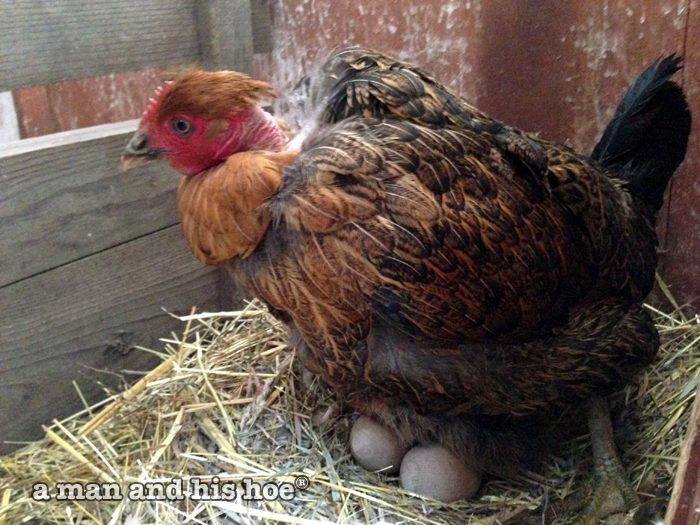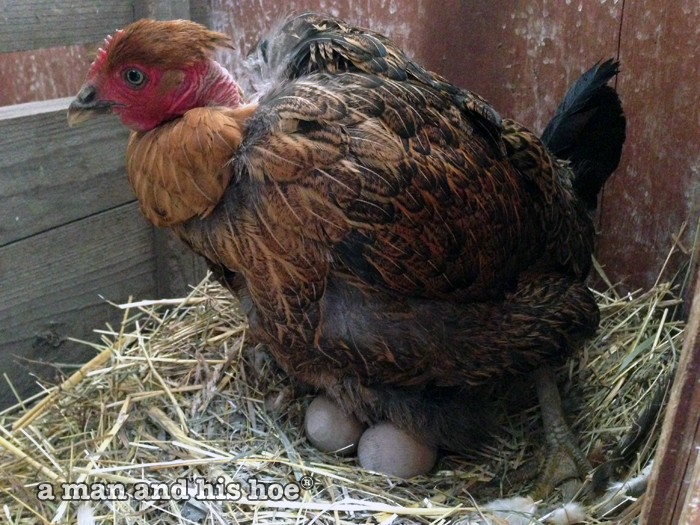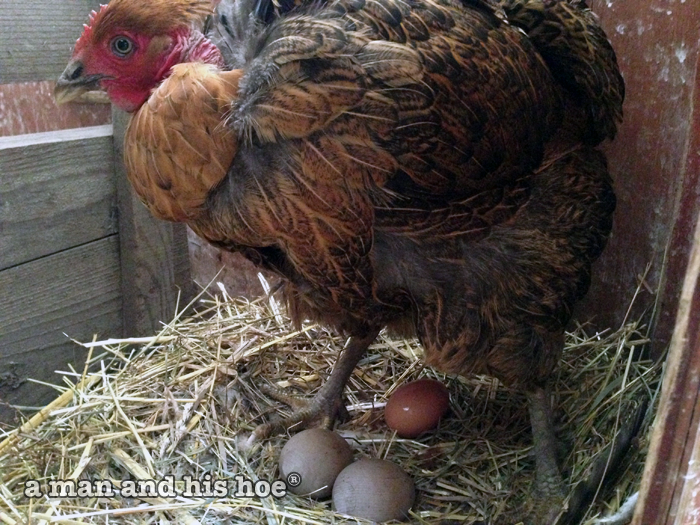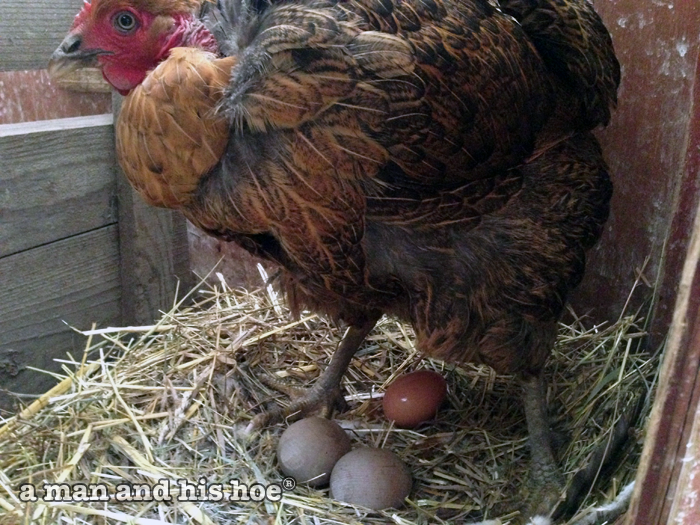Your cart is currently empty!
Laying an Egg
Chickens lay their eggs standing up. Here’s Hazel laying an egg. First, she sits quietly in the nest for ten, twenty, thirty minutes. Then when the time comes for the egg to pop out, she slowly stands and in a minute or two she drops her egg. Many hens leave the nest soon after laying their egg. Many hens also cackle loudly. I find this odd, as it alerts predators that there is a fresh egg in that spot. But the cackling seems to tell the other hens that the nest is now free, and that there is an egg there.
Hens work together to build a clutch of eggs to hatch. They don’t all want to hatch a clutch, so by working together and laying eggs in the same nest, they can more quickly go to work hatching the next generation of chicks. At least, that seems to be what is going on.




Eggs come out wet and shiny. This is called the bloom and it quickly dries, forming the cuticle, a protective barrier which keeps bacteria from entering the egg.
From Suburban Chickens:
Eggs are laid with what is called a “bloom” which naturally protects it. This is the coating on the egg shell that seals its pores. Also known as the cuticle, it helps to prevent bacteria from getting inside the shell and reduces moisture loss from the egg keeping it fresher longer.
Hens usually do not start incubating their eggs until they have a clutch of 10 to 15 eggs. She wants to start incubating all the eggs at the same time so that the eggs all hatch on the same day. Therefore, eggs need to stay viable for the ten days to two weeks it takes for her to build up a clutch. Which is why, if you take a freshly egg, and put it on the counter, it will still be fresh two weeks later.
Since washing eggs damages the cuticle, making eggs more susceptible to contamination, in Europe, egg producers are not allowed to wash eggs. Even the US National Center for Biotechnology Information acknowledges this:
Egg washing is currently not permitted within the European Union, with few exceptions. This is mainly because there are concerns that cuticle damage could occur during or after the washing process, as a result of a suboptimal operation. (Effect of egg washing on the cuticle quality of brown and white table eggs.)
But you won’t find unwashed eggs in your supermarket. Chances of finding an egg with its cuticle intact in a supermarket are nil. The USDA requires all USDA graded eggs and most large volume processors to follow the washing step with a sanitizing rinse at the processing plant. In Washington state, flocks of under 3,000 hens are USDA grade exempt and fall under state law. Washington state allows the following egg cleaning methods:
- dry cleaning by lightly “sanding” the stains or minimal dirty areas with sand paper;
- using potable water in a hand spray bottle and immediately wiping dry with a single service paper towel: and/or
- briefly rinsing with running water spray and immediately wiping dry with a single service paper towel.
If you would like to get eggs with their cuticles intact, you’ll need to find a small farm which can supply you with such eggs. And if you do find small farm which can sell you eggs, be sure to get a farm that will tell you when your eggs were laid.
Leave a Reply
You must be logged in to post a comment.